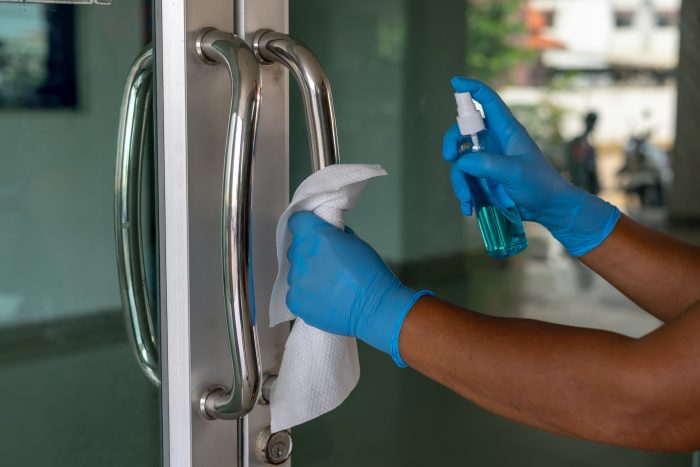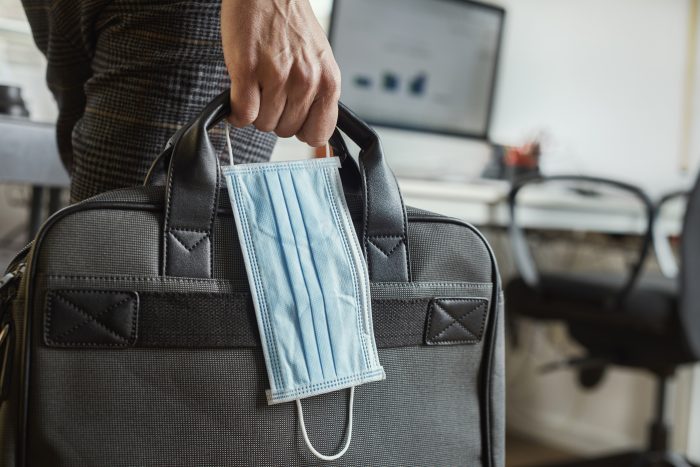Legal advice for golf clubs on returning to work
As clubhouses, bars and restaurants open up again after the shutdown, the NGCAA looks at some of the legal obligations placed upon golf club managers at this particularly trying time.
Duty of care At all times, employers have a duty of care for their staff: this comes under the common law from which an employer has to take reasonable care for the safety of those people its operations might reasonably affect.
In addition, there is a statutory duty imposed by the Health and Safety At Work Act 1974 which imposes a duty of every employer to ensure, so far as is reasonably practicable, the health, safety and welfare at work of all his employees.
As well as its employees, golf clubs will owe a duty of care to those other people who use and visit the course and clubhouse, namely members, visitors and guests, as well as any outside contract workers.
The net effect of the duty of care on employers is that they must:
• Carry out risk assessments and keep that assessment under review;
• Set up a safe system of work and then ensure that system is carried out (including the introduction of new work practices or provision of personal protective equipment);
• Prevent or control exposure to risk; and
• Provide any appropriate training on new practices or equipment.

Government guidance
The health and safety obligations are heightened as a result of Covid-19 and we have seen the recent ‘Our plan to rebuild: the UK Government’s Covid-19 recovery strategy’ which contains a step by step approach to allow businesses to reopen and for workplaces to follow Covid-19-secure guidelines.
The guidance should be considered alongside local public health and safety requirements and guidance and legislation in Northern Ireland, Scotland and Wales.
The UK government had produced detailed guidance to cover 12 different types of workplace settings, designed to help employers undertake Covid-19 risk assessment.
This is supported by five key steps to working safely:
1. Carry out and document COVID-19 risk assessment
• Carry out risk assessment in line with HSE guidance: how can the risk be avoided? What are the risks of putting people together?
• Consult with workers / unions
• Share results of risk assessment
2. Develop cleaning, handwashing and hygiene procedures
• Encourage practice of NHS handwashing guidance
• Provide hand sanitisers around the workplace and adequate handwashing facilities
• Frequent cleaning and disinfecting of objects / surfaces
• Enhanced cleaning for busy areas

3. Help people to work from home
• Discuss working from home arrangements
• Ensure employees have the right equipment
• Include in communications
• Consider mental and physical wellbeing
4. Maintain social distancing
• Visible signs reminding workers of social distancing
• Avoid shared work stations
• Floor tape / markings to help maintain distance
• One way traffic
• Visitors by appointment only
5. Manage transmission risk (where distancing not possible)
• Does the activity need to continue?
• Keep time as short as possible
• Screens and barriers
• Avoid face to face working
• Staggered arrival / departure times
• Limit contact – split teams

Food and beverage
With reference to the reopening of clubhouses, the hospitality industry is helped by the government guidance giving scope to relax the two metre social distancing rules in certain instances in favour of a ‘one metre plus’ rule.
This means that people must remain one metre apart while taking other mitigating steps to reduce the risk of transmission, such as wearing face coverings.
One of the 12 workplace specific guidance documents relates to restaurants, pubs, bars and takeaway services and includes:
• Keeping a temporary record of customers for 21 days to assist with NHS Track and Trace requests
• Providing clear guidance on arrival of social distancing and hygiene measures in place at the venue
• Utilising contactless payment wherever possible
• Calculating the maximum number of customers it is safe to accommodate taking into account either the two metre social distancing rule or new ‘one metre plus’ rule
• Where PPE is already being used, that should continue.
However, workplaces should not encourage the precautionary use of extra PPE and risk assessment should reflect the limited role such equipment will play.
• Table service should be offered with a designated server wherever possible. In instances where bar or counter service is unavoidable, customers need to be prevented from remaining at the bar after ordering.

Employment law – some possible issues with staff
There could be a range of possible claims arising from the return from lockdown, with the most likely potential claims being:
1. Unfair dismissal / Constructive dismissal
2. Health and Safety claims (a) detriment (b) automatic unfair dismissal
3. Whistleblowing protection
4. Discrimination
Vulnerable staff
(a) Clinically extremely vulnerable (those who have been advised to shield)
(b) Clinically vulnerable: (i) Individuals aged 70 and over (regardless of medical conditions) (ii) Individuals aged 70 and over with an underlying medical condition (iii) Pregnant women
Where vulnerable staff are returning to work, golf clubs should carry out a careful assessment of risk.
Can the staff be offered a different role temporarily to reduce contact with others?
Clubs should consider specific duties for those with protected characteristics (for example reasonable adjustments for disabled employees / suspension on full pay for pregnant women).
In general, though we advise that clubs adopt a cautious approach so as to reduce the risk of constructive dismissal and discrimination claims.

Employees living with a vulnerable person
The shielding guidance for those sharing a house with a vulnerable person says: “The rest of your household do not need to start shielding themselves, but they should do what they can to support you in shielding and to carefully follow guidance on social distancing.”
Employers should therefore adopt a sympathetic approach here. Suggestions to assist with employees living with a vulnerable person might be home working, furlough, annual leave or unpaid leave. If such an employee went on to refuse any alternatives here, it would be dangerous to assume that it is a simple case of refusing to follow a reasonable and lawful management request.
We recommend taking legal advice in any situation where an employee is refusing to return because of concerns over safety.
Employees with worries and anxiety about returning to work
Those employees may not be vulnerable or live with someone who is, but caution should be exercised when dealing with them. Again, golf clubs should look at options for working from home, flexible working or furlough.
Employers should explain the measures that are being put in place.
Query if the person is vulnerable and is there any discrimination angle?
The answers to these questions could throw a different light on the situation and, again, we recommend that clubs take advice before proceeding.
Childcare issues
Some employees may have been on furlough for some time now, along with their children whilst schools have been closed. As schools remain open for only some pupils, the return to work might leave some families without childcare.
Employers should consider more flexible homeworking arrangements, such as working different hours, part time work, agreeing that the employee may not be able to work a full day or a full week, reducing work targets and being flexible about deadlines where possible.
Employers should adopt a flexible approach in order to reduce the prospect of claims and, as always, please get in touch with alistair@ngcaa.co.uk or call 01886812943 for any further advice















In today’s ( pre-virus) very complicated business environments, we operate in, it’s important to be in close touch with your experts in managing your compliance obligations !! In times of crisis, even more important, risk is behind every corner !!